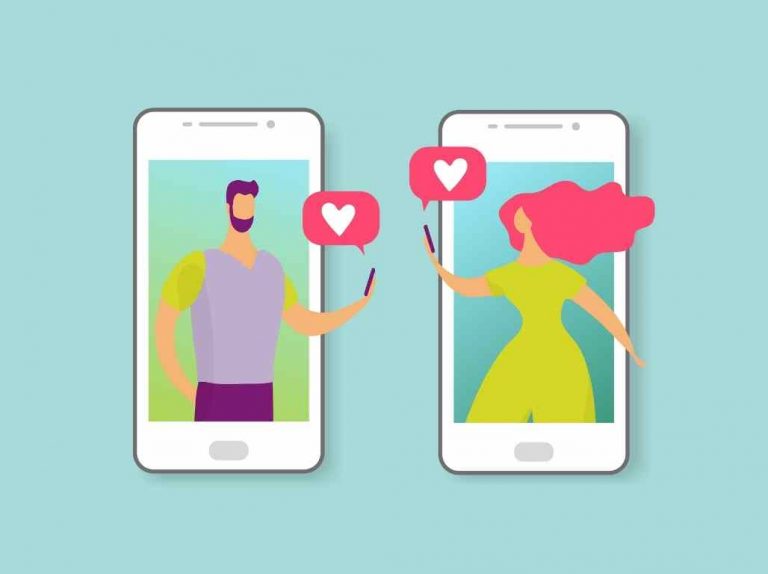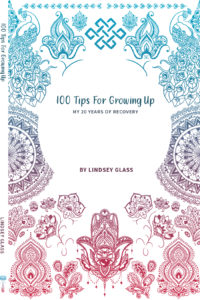Dating in recovery has taken on new meaning and challenges during and after the Covid Pandemic, and it’s not over yet. If you’re struggling with staying sober, this is not the time to look for partner. This is the time to stick with your recovery program and get back to in-person meetings whenever it’s safe to be with people. Have you been stuck in a mask for a year or more and have some strong recovery under your belt? Are you longing for companionship, and maybe even love again? Well, there are some things to think about addiction (substance use disorder) recovery before you start dating again.
Remember that substance use changes brain function. Addiction is defined as a chronic, relapsing brain disease. No judgement here. It is what it is. And healing the brain takes time. Yes, you can recover, but it takes time. Then, there’s the question of whether you can be honest about where you are in your recovery.
When you have a disease (any disease) and you are dating, you have to take into account how that disease has changed you and your behavior, and the way other people react to what you have. Unfortunately, there is still some stigma attached to substance use. Not everybody understands what it takes beyond just not using substances to become a healthy person again. Those in recovery need to learn a whole new way of being before healthy relationships can be established. And this goes for family members coping with the disease in a loved one as well. Everyone is impacted and hurt by the disease of addiction, and we all need tools to heal.
Recovery Experts Say It Takes Two Years For The Brain To Heal
Dating in early recovery means being with someone who hasn’t fully recovered from the effects of substances on the brain. You can’t just stop drinking and be the very best you can be. Negative behaviors that were learned in use will still be with you. An effective treatment program should include therapy and some kind of 12 step program (AA, Al-Anon, Smart Recovery, Celebrate Recovery are a few examples) as well as family and other kinds of support to learn a healthier way to manage life and relationships.
100 Tips For Growing Up
What Do People In Recovery Have To Learn
People who have SUD love to overdo whatever they love. It’s a disease of too much-ness. This too much-ness that makes life so messy has created cover-up strategies to hide or excuse the behaviors. Those in new recovery are very familiar with the survival skills that worked for them in substance use, but do not work for them in recovery. Honesty has gone by the wayside a long time ago. Manipulation of others is another behavior that goes along with substance use, as well as not taking responsibility for incidents that hurt others. These behaviors occur with very good people, and can be reversed with time. Old habits can change, but not overnight.
Dating in Recovery What comes first
In early recovery, so much is new, and often painful. People feel shame for what has occurred. They feel the stigma that others often have about their illness. And they may feel they have missed out on life, and their peers are doing much better than they are. In addition, alcohol or other substances have been masking many of their emotions for years. Now, in recovery people are raw and vulnerable. They have to start over without knowing what fun is, what honest relationships look like and feel like. They may feel an emotional spectrum in brighter colors, but not how to negotiate the ups and downs that come with relationships of all kinds.
For all of us who have experienced the recovery journey, this is the time to slow down and concentrate on finding the real you. The new you, and there is a new you, will emerge from this journey. Being with others who are experiencing the same things, will help you to live comfortably with who you really are and what your life can be on the other side of addiction. Sponsors, therapists, recovery coaches, and those in the programs with you will help you come out of your shell and move forward. Dating during this period is not a good idea.
When you’re ready to give love and relationships a second chance, it’s time to find like-minded people. Feel your emotional spectrum by interacting with people through FREE Chatlines, and search for dates that’ll understand your situation. Who knows the possibility of coming across an ideal match who’s right for you.
Anxieties Abound When Dating Does Begin
Here are some social anxieties and other things people in recovery worry about:
Will my date accept the fact that I am not drinking alcohol or using drugs anymore? This worry assumes you are dating people who still drink and party. A good idea is not to date people who are either still in active use, or are “normies” who enjoy having a drink or two but stop when they feel they’ve had enough. People who think they need to be drinking to have a good time are not a good choice for those who need another, safer way to have fun. Later on many people feel more comfortable around people who have a drink or two. But it’s never fun to be with heavy drinkers or druggers.
Is my addiction/recovery going to determine our next date? This worry is about whether a person’s SUD and/or recovery by itself will be the reason he (or she) doesn’t get a second date. Rest assured that your personality and authenticity as a person is what will determine your attractiveness, not your history with substances as long as you have responsible behaviors to go along with your personality.
Will dating trigger a relapse? This is a legitimate concern. If you want to be part of the drinking crowd and feel that you have to join in, or someone is urging you to have a drink, or a smoke, or a pill, you are definitely at risk for a relapse. So, who you date matters, and what you do on your dates also matters.
5 Tips For Sober Dating
- Stick with your program and attend meetings, therapy and coaching, as well as follow-up doctor appointments
- Be honest with your date about your SUD and recovery because open communication and truthfulness is the base for a strong lasting relationship.
- Learn to accept the response of your date. There will be times that he (or she) will be able to handle your SUD and recovery without judgment and sometimes not
- Make absolutely sure, above all, that your sobriety comes first. Your sobriety is a matter of life or death.
- Do not rush dating. Make an emotional assessment whether you are ready or not for dating. Perhaps you need to work on yourself for a longer period.
Dating in recovery is possible. It is only natural to want that special someone to be with and love. Just remember that sober reference, (experiencing the ups and downs of everyday life without drama or falling into crisis mode) is necessary to build the foundation of stability that healthy relationships require.
And check out more tips in Dating with a mental illness.






















